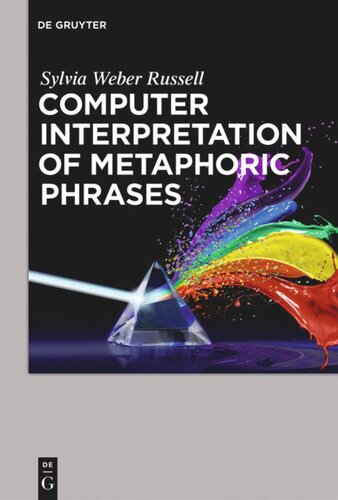

Most ebook files are in PDF format, so you can easily read them using various software such as Foxit Reader or directly on the Google Chrome browser.
Some ebook files are released by publishers in other formats such as .awz, .mobi, .epub, .fb2, etc. You may need to install specific software to read these formats on mobile/PC, such as Calibre.
Please read the tutorial at this link: https://ebookbell.com/faq
We offer FREE conversion to the popular formats you request; however, this may take some time. Therefore, right after payment, please email us, and we will try to provide the service as quickly as possible.
For some exceptional file formats or broken links (if any), please refrain from opening any disputes. Instead, email us first, and we will try to assist within a maximum of 6 hours.
EbookBell Team

4.1
60 reviewsThe computational approach of this book is aimed at simulating the human ability to understand various kinds of phrases with a novel metaphoric component. That is, interpretations of metaphor as literal paraphrases are based on literal meanings of the metaphorically used words. This method distinguishes itself from statistical approaches, which in general do not account for novel usages, and from efforts directed at metaphor constrained to one type of phrase or to a single topic domain.
The more interesting and novel metaphors appear to be based on concepts generally represented as nouns, since such concepts can be understood from a variety of perspectives. The core of the process of interpreting nominal concepts is to represent them in such a way that readers or hearers can infer which aspect(s) of the nominal concept is likely to be intended to be applied to its interpretation. These aspects are defined in terms of verbal and adjectival predicates. A section on the representation and processing of part-sentence verbal metaphor will therefore also serve as preparation for the representation of salient aspects of metaphorically used nouns.
As the ability to process metaphorically used verbs and nouns facilitates the interpretation of more complex tropes, computational analysis of two other kinds of metaphorically based expressions are outlined: metaphoric compound nouns, such as "idea factory" and, together with the representation of inferences, modified metaphoric idioms, such as "Put the cat back into the bag".